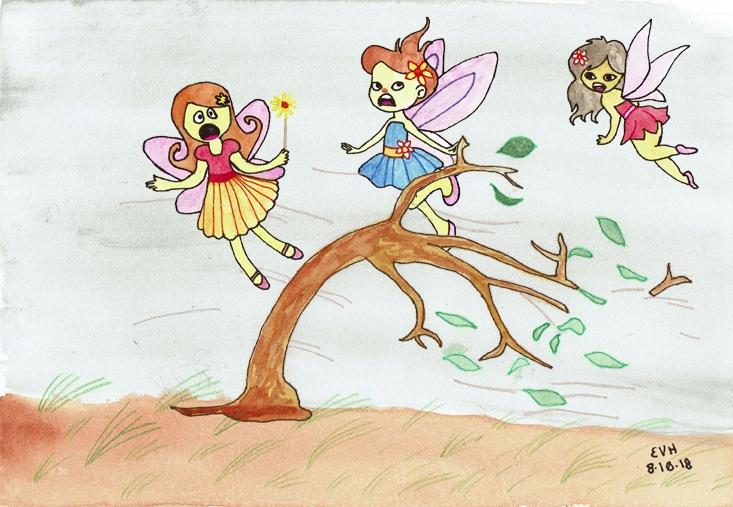
Jataka 74
Rukkhadhamma
The Tree Dharma
as told by Eric Van Horn
originally translated by Robert Chalmers, B.A., of Oriel College, Oxford University
originally edited by Professor Edward Byles Cowell, Cambridge University
This is a story about how families and communities should stick together and support each other. There are a number of Jātaka Tales with this theme.
“United, like a forest.” This story was told by the Master while at Jetavana. It is about a disagreement about water that had brought misfortune to his family. Knowing about the dispute, the Buddha passed through the air, sat cross-legged above the river Rohiṇī, and emitted rays of darkness, startling his family. Then, descending from midair, he seated himself on the river bank and told this story with reference to that dispute. (Only a summary is given here. The full details will be related in the Kuṇāla Jātaka [Jātaka 536].)
But on this occasion the Master addressed his family, saying, “It is proper, sire, that families should live together in concord and unity. For, when families are united, enemies cannot harm them. This is not just true for human beings. Even trees lacking sense should stand together. For in bygone days in the Himalayas a storm struck a Sāl forest, yet, because the trees, shrubs, bushes, and creepers of that forest were interlaced with one another, the storm could uproot even a single tree. (The Buddha died underneath a Sāl tree.) It passed harmlessly over their heads. But a mighty tree stood alone in a courtyard, and although it had many stems and branches, because it was not united with other trees, the storm uprooted and destroyed it. Therefore, it is proper that you too should live together in concord and unity.” And so saying, at their request he told this story of the past.
Once upon a time when Brahmadatta was reigning in Benares, the first King Vessavaṇa (also known as Kuvera, Kubera, or Kuber, the Lord of Wealth) died, and Sakka sent a new king to reign in his stead. After the change, the new King Vessavaṇa sent word to all trees and shrubs and bushes and plants, bidding the tree fairies to each choose the dwelling place that they liked the best.
In those days the Bodhisatta was reborn as a tree fairy in a Sāl forest in the Himalayas. His advice to his family in choosing their homes was to avoid trees that stood out in the open, and to take up residence around the home which he had chosen in that Sāl forest. The wise tree fairies, following the Bodhisatta’s advice, took up their living quarters around his tree. But the foolish ones said, “Why should we live in the forest? Let us rather seek out places where humans live, and live outside villages, towns, or capital cities. For fairies who live in such places receive the richest offerings and the greatest worship.” So they left for the places where humans lived and took up living in giant trees that grew in the open space.
Now one day a mighty storm swept over the country. It did not avoid the solitary trees that for many years had rooted deep in the soil and were the mightiest trees that grew. Their branches snapped, their stems were broken, and they themselves were uprooted and flung to earth by the storm. But when it broke on the Sāl forest of interlacing trees, its fury was in vain. For no matter where it attacked, it could not uproot a single tree.

Figure: The Foolish Tree Fairies
The forlorn fairies whose homes were destroyed took their children in their arms and went to the Himalayas. There they told their sorrows to the fairies of the Sāl forest. They in turn told the Bodhisatta of their sad return. “It was because they did not heed the words of wisdom that this has happened to them,” he said, and he unfolded the truth in this stanza:
Families should stand together, united like a forest.
The storm overthrows the solitary tree.
So spoke the Bodhisatta, and when his life was over, he passed away to fare according to his karma.
And the Master went on to say, “Thus, sire, reflect how proper it is that families should be united, and lovingly live together in concord and unity.” His lesson ended, the Master identified the birth by saying, “The Buddha’s followers were the fairies of those days, and I was the wise fairy.”
